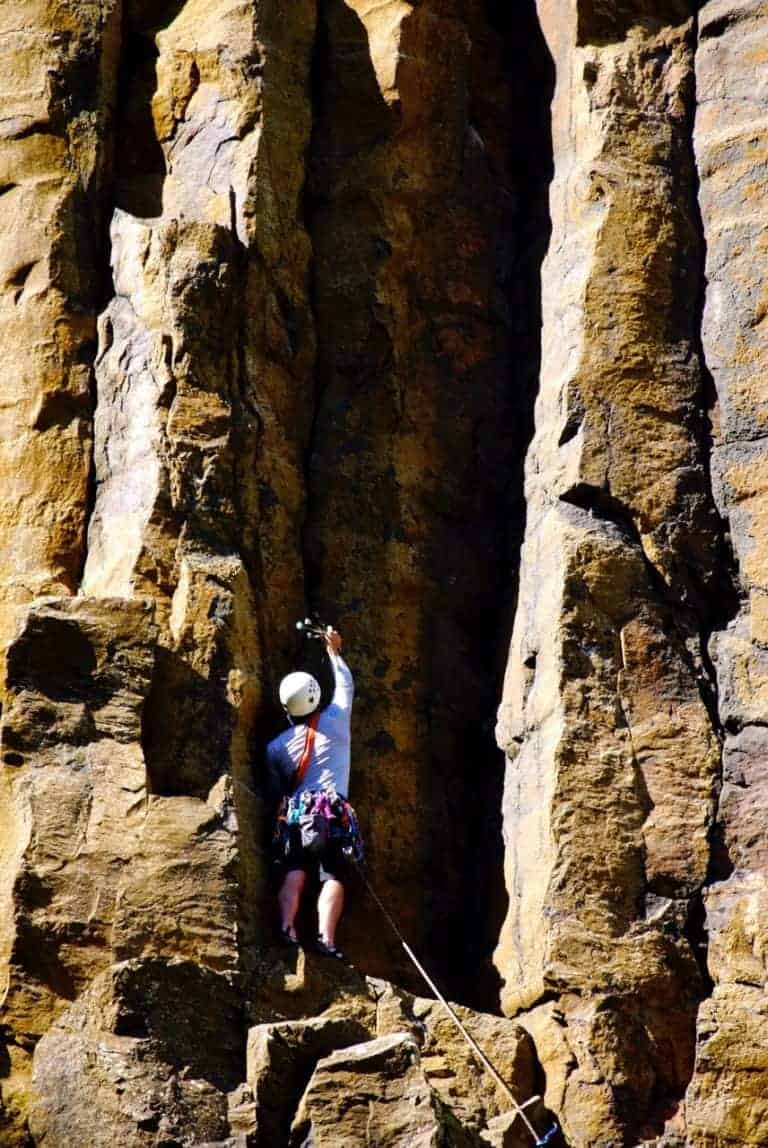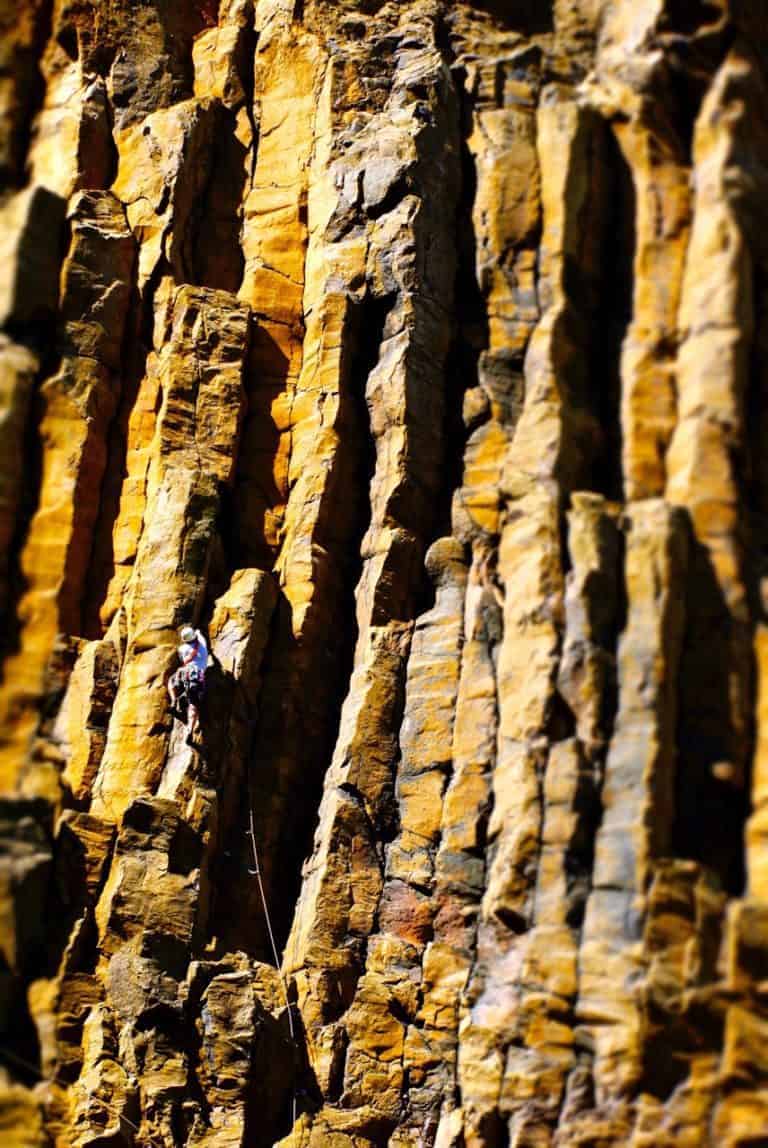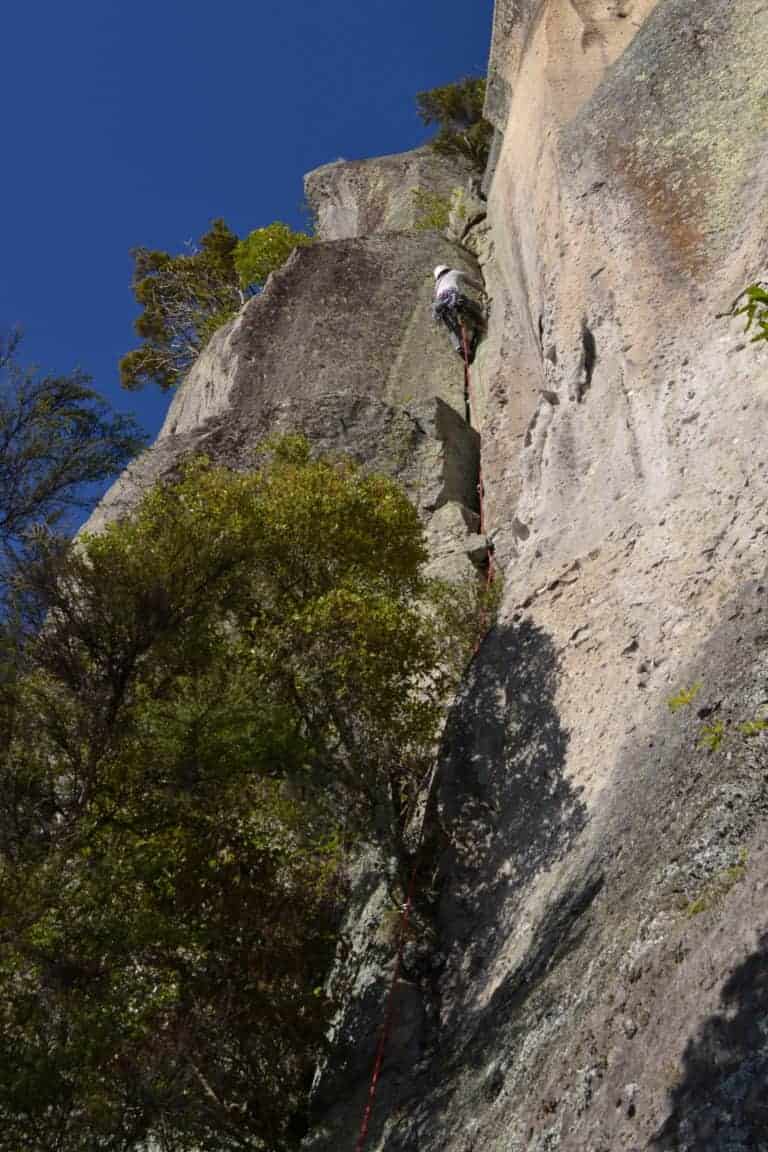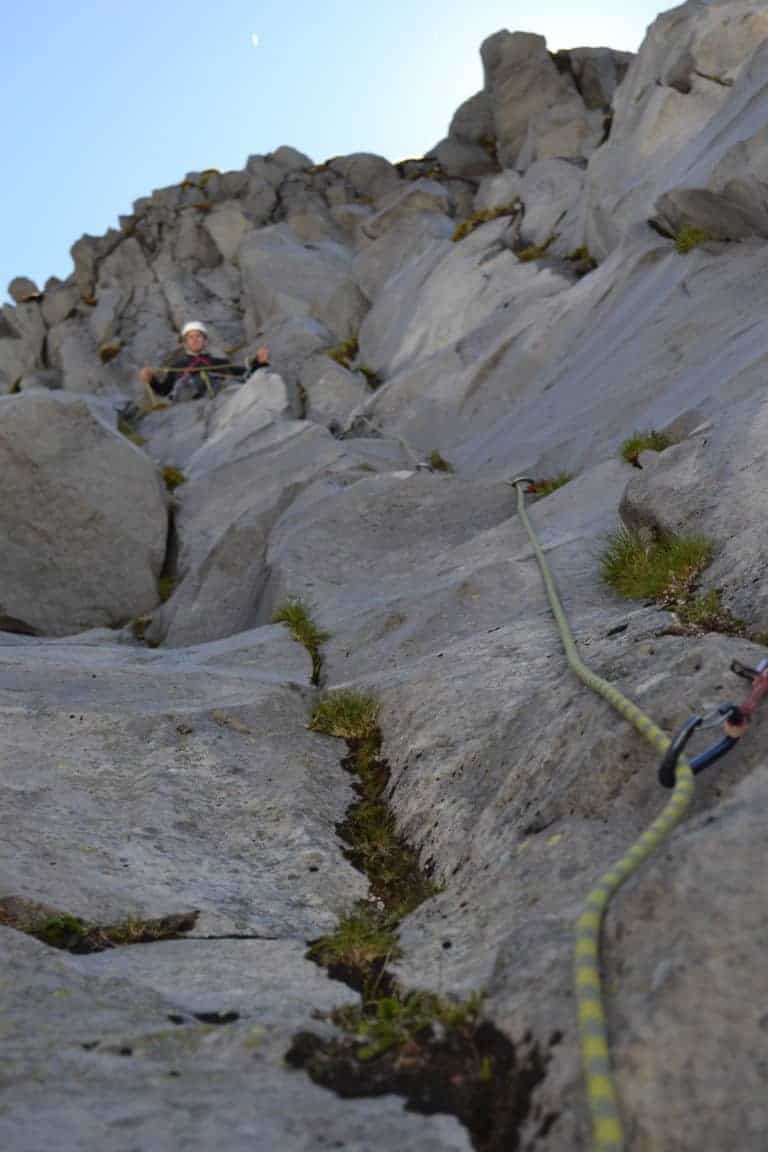- Overview
- Syllabus
- Gallery
- FAQ
- Dates & Pricing
- Gear list
Traditional climbing (trad) is a brave and noble choice
For those with diverse climbing experience, trad means climbing sessions to advance your skills, you can climb rocks where there is no fixed protection. Discover the world beyond bolts to searing lines without crowds.
Flexible trad climbing options to suit you
The Social Nature Movement team offers you the choice and flexibility to choose your duration of trad climbing course in NZ.
We have options for a days trad climbing course, two days/overnight, four days and seven days of trad climbing.
Our trad climbing course options are for anyone wanting to start trad climbing, get guided around, learn more about skills and knowledge or simply spend time in nature and trad climb as much as possible with a guide on your side.
Ever wondered about trad climbing where there are no bolts?
What do you do when there’s no more shiny bolts on the rockface?! The answer is Trad Climbing. Shorthand for 'traditional' climbing. Explore the true roots of traditional rock climbing by placing equipment (protection) into cracks and holes in the rock while you climb, the 2nd climber then removers the equipment. Trad climbing evolved from mountaineering; effectively it is a safer and more vertical form where one used to literally tie a rope around ones waist and hope that your partner holds you (with their hands) and/or the rope wraps around a rock to act as friction or an anchor. Imagine that! Now we think on (and with) our feet as we wriggle cam’s/SLCD’s/friends, nuts/wires/stoppers and hexentrics/hexes etc. (also known as trad gear) into the rock. Another history lesson? The lost climbing tribe of 'they' used to place stones into the rock as 'proctection' or simply tie knots in their ropes hoping they would wedge into the rock.
Fast forward to the 21st century with trad climbing courses
People now learn on professional courses under experienced instruction with the latest in equipment and technology. Things no longer break in climbing, people simply make bad decisions or have brain farts.
From Arapiles to the Verdon Gorge, Norway to USA, our instructors and guides have climbed all over the world and love to share their passion and knowledge with you! It allows us to share universal knowledge that creates the safest and best practice of rock climbing there is, giving you a sport and practice to take travelling as a means to explore.
Each of our courses are tailored to the participants, ensuring you get exactly what you’re after as well as resources to take away!
This course is ideal for climbers who are lead climbers; effectively we are just placing our own removable bolts as we climb. But to place protection so that it holds you should you fall is the most challenging and artistic part of our trad climbing courses.
Trad climbing is the purest 'safe' form of rock climbing as opposed to completely free-soloing
You do not need not be climbing high grades for these courses.
Our training locations have a range of climbing routes, including some that are very easy. This course focuses on trad gear placements and anchor building.
This course is suitable for recreational climbers and those working towards their New Zealand Outdoor Instructors Association (NZOIA) Rock1 or Rock2 instructor awards.
Check out our booking tab, click the book now button or fill an enquiry here.
Correct equipment selection and knowledge
Learn the principles of placing and removing equipment
Correct belaying techniques/catching methods
Setting up Anchors
Climbing in Aotearoa
Single and Multi-Pitch
Placing and removing equipment such as camming devices and wires or nuts
How to extend runners
The process of belay from the top including setting up anchors
The art of using natural (trees, boulders, threads, horns, etc.) and placed protection and much more!
Development of rock climbing as a sport and current developments and trends
Advantages and disadvantages of current equipment used for rock climbing and reasons for choice
Placed protection e.g. wires, stoppers, hexes, camming devices
Fixed protection e.g. bolts, chains, bollards, trees or threads
Placing protection and runners for lead climbing
That is relative to what you physically and mentally find hard to do. It's like saying all climbs are hard, some are just harder than others. Our trad climbing courses can take you on the easiest of climbs, that it is more focused on the skill of trad climbing rather than the physical abiliyt. Or you can have it either way.
Some experience is preferred, but for example if you chose our 7 day trad course, we cna guarantee you will advance through the ranks and become a proficient trad climber by the end of your trad climbing course.
We select the best staff for the job based on their skills, knolwedge and experiences. They will be an SNM staff member or we will bring in support from equally competent contractors. Sometimes we also bring in (semi)celebrity guests!
This changes depending on what we do and where we go, but generic items are:
Clothing
- Thermal bottom leggings,
- Underwear,
- Shorts
- Pants
- Swimwear
- Socks
- Thin merino shirt / thermal shirt x 2
- Fleece jumper x1
- Woolen jumper x1
- Wind and Rain-proof Jacket
- Sunhat
- Warm beanie
- Neck warmer / scarf
- Warm gloves
Equipment
- Jandals
- Closed-toe footwear
- Sunglasses
- Personal medication
- Water bottle,
- Head torch,
- Toiletries.
- Waterproof pack liner
- Backpack to put all of the above in
If we are staying overnight, should you choose not to be accommodated and fed by us, here is what you will need:
Sleeping
- Sleeping bag
- Pillow
- Inflatable mattress
- Tent
Cooking
- Cooker
- Fuel / gas
- Lighter / matches
- Pot / frying pan
- Cutlery
- Crockery
All of the above is available to rent / hire / buy
Includes:
One staff
Activity specific items:
Rope
Quick draws
Harness
Helmet
Shoes
Staff carry:
First Aid Kit
Emergency shelter





Click... Tap...
Tap...
Press... Open...
Open...